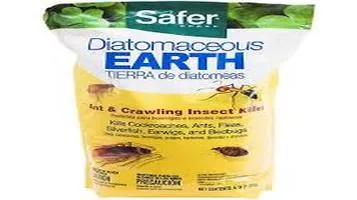Review of Diatomaceous Earth (DE)
Diatomaceous Earth is a naturally occurring, soft sedimentary rock composed of the fossilized remains of diatoms, a type of microscopic algae. Over millennia, these silica-rich remains accumulate in bodies of water, eventually forming a fine, white to off-white powder. Known for its abrasive and absorbent properties, Diatomaceous Earth is used in a variety of applications, from industrial to personal. In agriculture and gardening, it serves as a natural insecticide, effectively disrupting the exoskeletons of pests. It is also used as a filtration aid, mild abrasive in products like toothpaste, and even a dietary supplement, owing to its high silica content. Its versatility, eco-friendliness, and non-toxic nature make it a popular choice in sustainable practices.

Introduction
Diatomaceous Earth (DE) is a naturally occurring, soft, siliceous sedimentary rock that can be crumbled into a fine white to off-white powder. It has a wide range of applications, from industrial to domestic uses. Over the years, DE has gained considerable attention, and for good reasons. This review aims to provide a comprehensive overview of DE, exploring its benefits, uses, and some potential drawbacks.
Composition and Characteristics
DE is composed of the fossilized remains of diatoms, a type of hard-shelled algae. The main component of DE is silica, which accounts for about 85-90% of its composition. The material is porous, making it lightweight and abrasive. The unique properties of DE make it suitable for various uses, from pest control to food-grade applications.
Uses of Diatomaceous Earth
Pest Control
One of the most popular uses of DE is as a natural pesticide. The fine powder works by absorbing the oils and fats from the exoskeletons of insects, causing them to dehydrate and die. This makes DE an effective and eco-friendly solution for controlling pests such as ants, bedbugs, cockroaches, and fleas. Unlike chemical pesticides, DE poses no risk to humans or pets, making it a preferred choice for many households.
Filtration
DE is widely used in filtration processes. Its porous nature allows it to trap fine particles, making it an excellent medium for filtering water, beer, wine, and other liquids. In swimming pools, DE filters are renowned for their ability to keep water crystal clear by removing even the smallest impurities.
Health and Beauty
Food-grade DE has gained popularity in health and beauty circles. Proponents claim that it can help detoxify the body, improve skin health, and even aid in weight loss. Some people use it as a natural supplement for its purported ability to cleanse the digestive tract. However, it's crucial to consult healthcare professionals before incorporating DE into your diet, as scientific evidence supporting these claims is limited.
Agriculture
In agriculture, DE is used as a soil conditioner and as an anti-caking agent in animal feed. Its ability to absorb moisture helps keep grains dry, preventing mold and mildew. Additionally, it serves as a natural insecticide for crops, offering a safer alternative to chemical pesticides.
Benefits of Diatomaceous Earth
Eco-Friendly
One of the most significant advantages of DE is its environmental friendliness. Unlike chemical pesticides, DE is non-toxic and does not harm the environment. It decomposes naturally, leaving no harmful residues.
Versatility
DE's versatility is another strong point. From pest control to filtration and health applications, its range of uses is impressive. This makes it a valuable addition to any household or industrial setting.
Safety
When used correctly, DE is safe for humans and pets. Food-grade DE, in particular, is considered safe for consumption in small amounts. However, it's essential to differentiate between food-grade and industrial-grade DE, as the latter may contain additives that are not safe for ingestion.
Potential Drawbacks
Respiratory Irritation
One of the primary concerns with DE is its potential to cause respiratory irritation. The fine powder can become airborne, and inhaling it may lead to respiratory issues. It's advisable to wear a mask when handling DE to minimize this risk.
Limited Scientific Evidence
While many people advocate for the health benefits of food-grade DE, scientific studies supporting these claims are limited. More research is needed to validate its effectiveness as a health supplement.
Ineffectiveness in Humid Conditions
DE works by dehydrating insects, so it is less effective in high-humidity environments. In such conditions, the powder can absorb moisture from the air, reducing its efficacy as a pest control agent.
Conclusion
Diatomaceous Earth is a versatile, eco-friendly, and generally safe material with a wide range of applications. Its ability to control pests, filter liquids, and potentially offer health benefits makes it a valuable resource. However, it's essential to handle DE with care to avoid respiratory irritation and to consult professionals before using it for health purposes. While it may not be a one-size-fits-all solution, its benefits far outweigh its drawbacks, making DE a worthwhile investment for both domestic and industrial uses.






